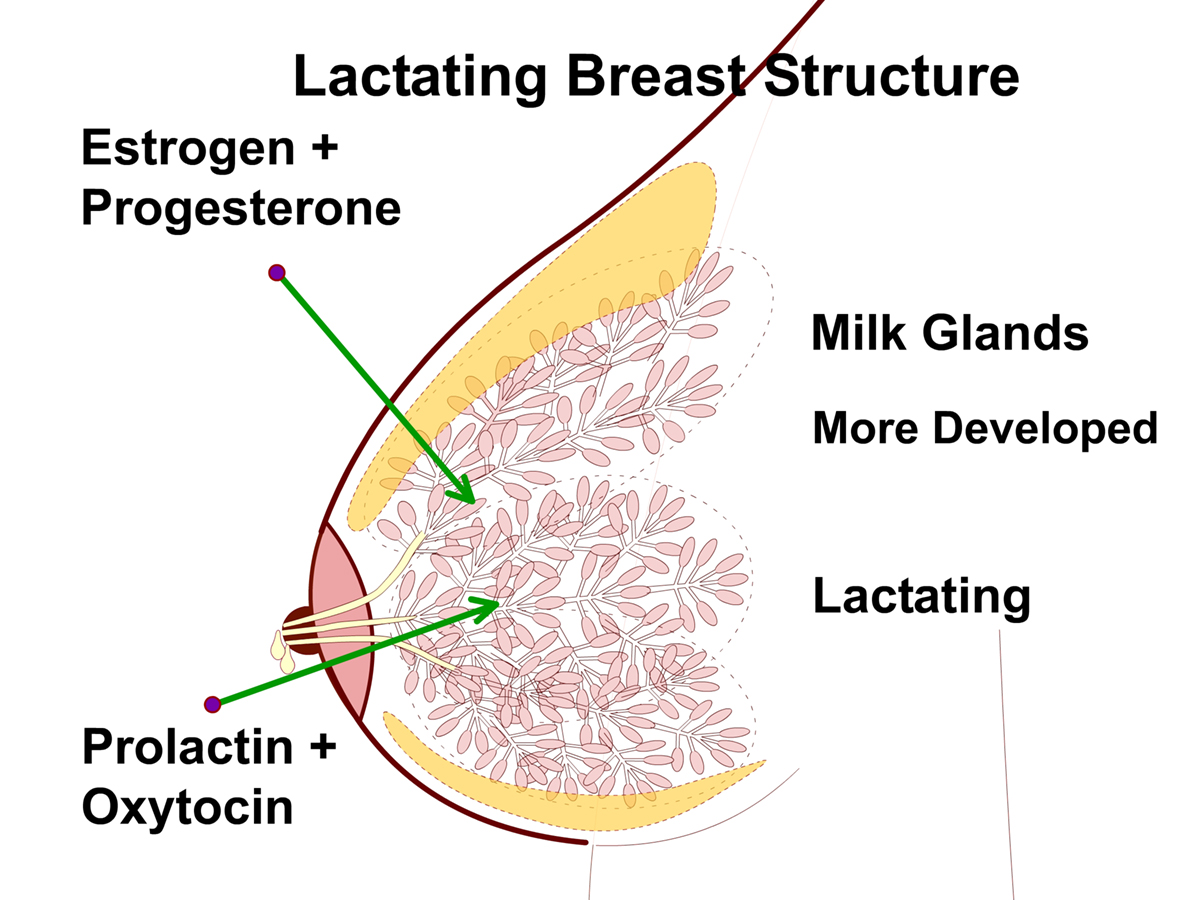The two main hormones in the female body are progesterone and estrogen, and these two hormones are responsible for the developing of sex organs, as well as for the development of female sex characteristics. It is very important to keep these two hormones in balance, since otherwise, they may cause several physical and psychological changes in women.
The Role of the Hormone Progesterone
The main role of the hormone progesterone is to help in the reproduction that occurs in the body of a woman. Every month, the ovaries release the egg with ovulation. When this egg is fertilized with sperm, it implants itself in the uterus lining. The lining of the uterus is medically called the endometrium lining. The ovaries also produce the hormone progesterone, which has the role to thicken the lining of the uterus and prepare it for the fertilized egg every month.
On the other hand, when the amount of produced progesterone is small, the uterus lining is very thin and consequently conceiving is made difficult. The low progesterone thus may cause infertility in females. Furthermore, even when a woman stays pregnant while the levels of progesterone are low, it may induce many complications.
The ovaries are responsible for the manufacturing of this hormone until the eighth week of pregnancy. After that period, the placenta produces progesterone. This hormone is very important for a healthy growth of the fetus because it has the role to nourish the fetus by providing the sufficient blood to the womb.
Symptoms of Low Progesterone in Early Pregnancy
There are several warning signs of low levels of this hormone in pregnant women in their early pregnancy. One of the most common symptoms is bleeding that occurs in the first few weeks of pregnancy. In the majority of cases, this bleeding occurs together with abdominal cramps. Another symptom of progesterone deficiency is breast tenderness.
The pregnant women with this condition have breasts that are extremely sensitive to a slightest touch. The pain that appears in the lower part of the back is also one of the symptoms of progesterone insufficiency in early pregnancy. Other symptoms of this disorder are vaginal dryness and painful sexual intercourse, as well as tiredness, insomnia and even depression in some severe cases.
Treatment of Low Progesterone in Early Pregnancy
Since, the role of the progesterone is very important in pregnant women, it should be treated immediately. Many doctors recommend progesterone supplements that can be used in the form of injections, oral medicines and vaginal suppositories. Furthermore, topical creams can also be very effective for this condition.
- The first of the new studies, published in the American Journal of Obstetrics and Gynecology, examines the findings of two major clinical trials - PROMISE and PRISM - led by the University of Birmingham and Tommy’s National Centre for Miscarriage Research. PROMISE studied 836 women with unexplained recurrent miscarriages at 45 hospitals in the UK and the Netherlands, and found a 3% higher live birth rate with progesterone. PRISM studied 4,153 women with early pregnancy bleeding at 48 hospitals in the UK and found there was a 5% increase in the number of babies born to those who were given progesterone who had previously had one or more miscarriages, compared to those given a placebo.
- The benefit was even greater for the women who had previous ‘recurrent miscarriages’ (i.e., three or more miscarriages) - with a 15% increase in the live birth rate in the progesterone group compared to the placebo group.
- The second of the new studies, published in BJOG: an international Journal of Obstetrics & Gynaecology, evaluates the economics of the PRISM trial and concludes that progesterone is cost-effective, costing on average £204 per pregnancy.








-Why-Some-Women-Take-This-Type-Of-Progesterone-During-Early-Pregnancy_f_280x120.jpg)








Your thoughts on this
Loading...